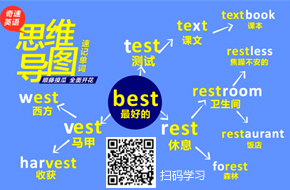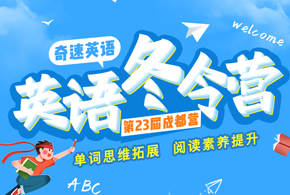Module 1
一、重点单词:
song 歌曲
TV 电视台
favourite 最喜欢的
colour 颜色
二、重点句型:
1. A: What’s your favourite song?
你最喜爱的歌曲是什么?
B: It’s the ABC song.
是 ABC 之歌。
2. A: What’s your favourite colour?
你最喜爱的颜色是什么?
B: My favourite colour is yellow\blue\red\black\green.
我最喜爱的颜色是黄色\蓝色\红色\黑色\绿色。
3. A: Here you are. 给你
B: Thank you.谢谢。
Module 2
一、重点单词:
they 他(她/它)们
they're=they are 他(她/它)们是
monkey 猴子
baby 幼兽,幼畜
all 每个;全体
zoo 动物园
tiger 老虎
lion 狮子
elephant 大象
fat 胖的
man 人,男人
short 矮的
tall 高的
small 小的
thin 瘦的
big 大的
二、重点句型:
1. A: What’s this? 这个是什么?
B: It’s a tiger\ lion\monkey\panda\an elephant.
它是一只老虎\狮子\猴子\熊猫\大象。
2. A: What are they? 它们是什么?
B: They’re tigers\lions\monkeys\pandas\elephants.
它们是老虎\狮子\猴子\熊猫\大象。
3. This man is tall.
这个男人是高的。
4. That man is short.
那个男人是矮的。
5. This monkey is small and thin.
这只猴子既小又瘦。
6. That monkey is big and fat.
那只猴子既大又胖。
Module 3
一、重点单词:
like 喜欢
football 足球
them 他(她/它)们
ouch 哎呦
basketball 篮球
table tennis 乒乓球
morning exercises 早操
ride 骑
bike 自行车
swim 游泳
二、重点句型:
I like football\ basketball\ table tennis\ morning exercises\ swimming\ skipping\ riding bikes.
我喜欢足球\篮球\乒乓球\早操\游泳\跳绳\骑自行车。
I don’t like football\ basketball\ table tennis\ morning exercises\ swimming\ skipping\ riding bikes.
我不喜欢足球\篮球\乒乓球\早操\ 游泳\跳绳\骑自行车。
Module 4
一、重点单词:
meat 肉
pass 传递
rice 米饭;米
mum 妈妈
noodles (常复)面条
fish 鱼肉;鱼
but 但是
milk 牛奶
mm 呣
does do 的第三人称单数形式
orange 橙;柑;橘
apple 苹果
banana 香蕉
pear 梨
doesn't =does not 不
二、重点句型:
1. A: Please pass me the rice.
请把米饭传递给我。
B: Here you are. 给你。
2. A: Do you like meat\noodles\milk\fish\rice?
你喜欢肉\面条\牛奶\鱼肉\米饭吗?
B: Yes, I do.\ No, I don’t.
是的,我喜欢。\不,我不喜欢。
3. A: Does Lingling like bananas\pears\oranges\apples?
玲玲喜欢香蕉\梨\橘子\苹果吗?
B: Yes, she does.\No, she doesn’t.
是的,她喜欢。\不,她不喜欢。
4. A: Does Sam like bananas\pears\oranges\apples?
萨姆喜欢香蕉\梨\橘子\苹果吗?
B: Yes,he does.\No,he doesn’t.
是的,他喜欢。\不,他不喜欢。
Module 5
一、重点单词:
goes(go的第三人称单数形式)去,到
go to school 上学
on 在……的时候;通过……,以……的方式
Monday 星期一
play 参加(体育活动、比赛等)
phone 电话;电话机
on the phone 通电话
with 与……在一起,同,跟,和
friend 朋友
at 在……
home 家
at home 在家
who 谁
only 只,仅仅
year 年龄,岁数
work 工作地点
go to work 上班
Saturday 星期六
shopping 购物
go shopping 去购物
dad 爸爸
二、重点句型:
1. He\She goes to school on Monday.
他\她周一去上学。
2. Tom doesn’t go to school on Mondays.
汤姆星期一不去上学。
3. A: Is Amy at home?艾米在家吗?
B: Yes,she is.\ No, she isn’t.
是的,她在。\不,她不在。
4. A: Does Tom go to school on Mondays?
汤姆星期一去上学吗?
B: No, he doesn’t.
不,他不去。
5. A: Does your mum go to work on Saturdays?
你妈妈周六去上班吗?
B: Yes,she does.\No,she doesn’t.
是的,她去。\不,她不去。
6. He plays football on Saturdays.
他周六踢足球。
7. The dog likes meat.
狗喜欢吃肉。
Module 6
一、重点单词:
do 做,干
Sunday 星期日
swimming 游泳(运动)
go swimming 去游泳
eat 吃
in 在……期间,在……时候
sleep 睡觉
watch 观看TV 电视节目
watch TV 看电视
have 做;进行,从事
class 课;班级
today 今天
music 音乐
has (have的第三人称单数形式)做;进行,从事
Chinese 语文,汉语
maths 数学
art 美术
PE=physical education 体育
science 科学
二、重点句型:
1. A: What do you do on Sundays?
你星期日做什么?
B: I go swimming\watch TV\sleep.
我去游泳\看电视\睡觉。
2. A: What do you do in the morning\afternoon?
你早晨\下午做什么?
B: I go swimming\play football\watch TV\sleep in the morning\afternoon.
我早晨\下午去游泳\踢足球\看电视\睡觉。
3. A: What do you have in the morning\afternoon?
你早晨\下午在学校学的什么?
B: I have English, Chinese, Maths and Science in the morning\afternoon .
早晨\下午学的英语,语文,数学还有科学。
4. A: What does Xiaoyong have at school today?
小勇今天在学校学什么?
B: He has Music, Art and PE.
他学音乐,美术还有体育。
Module 7
一、重点单词:
we 我们
fly 放(风筝)
spring 春天
summer 夏天
season 季节
nice 迷人的,令人愉快的
warm 暖和的
hot 热的
autumn 秋天
cool 凉爽的
winter 冬天
cold 寒冷的
skating 滑冰
go skating 去滑冰
play 玩,玩耍
snow 雪;下雪
rain 雨;下雨
sunny 晴朗的,阳光充足的
windy 有风的,刮风的
very 很,非常
二、重点句型:
1. It’s warm in spring.
春天很暖和。
It’s hot in summer.
夏天很炎热。
It’s cool in autumn.
秋天很凉爽。
It’s cold in winter.
冬天很冷。
2. We fly kites in spring.
春天我们放风筝。
We go skating in winter.
冬天我们去滑冰。
We go swimming in summer.
夏天我们去游泳。
We play football in autumn.
秋天我们踢足球。
3. A: What do you do in spring?
你在春天做什么?
B: I fly kites\play football\watch TV in spring.
春天我放风筝\踢足球\看电视。
4. It’s warm today,but it’s raining.
今天很温暖,但是下雨了。
It’s hot and sunny today.
今天炎热晴朗。
It’s cool and windy today.
今天凉爽有风。
It’s snowing today. It’s very cold.
今天下雪了。天很冷。
Module 8
一、重点单词:
toy玩具
under 在……下面
for 为, 给,对
box 盒子
behind 在……后面
bedroom 卧室
flies(fly的第三人称单数形式)放(风筝)
park 公园
lake 湖
tree 树
fishing 捕鱼,钓鱼
go fishing 去钓鱼
walk 行走,步行
二、重点句型:
1. It’s on your desk.
它在你的桌子上。
It’s behind the door.
它在门后面。
It’s under the chair.
它在椅子下面。
It’s in the box.
它在盒子里。
2. The panda is in the cap.
熊猫在帽子里。
3. In spring, Daming flies a kite in the park.
春天里,大明在公园里放风筝。
In summer,he swims in the lake.
夏天,他在湖里游泳。
In autumn,he goes fishing under the tree.
秋天,他在树下钓鱼。
In winter,he walks in the snow.
冬天,他在雪地里步行。
4. A: Where is the apple?
苹果在哪里?
B: It’s in\on\under the desk.
它在桌子里面\上\下面。
Module 9
一、重点单词:
have got有
sweater 毛线衫
bed 床
line 线,绳,金属丝
about 关于
animal 动物
sport运动
haven't(got)=have not (got) 没有
dress 连衣裙
coat 外套
T-shirt T恤衫
has got (have got的第三人称形式)有
hasn't(got)=has not (got) 没有
by 乘(交通工具)
bus 公共汽车
car 汽车,轿车
二、重点句型:
1. It isn’t in\on\under\behind the desk.
它不在桌子里面\上面\下面\后面。
2. I have got a new dress\coat\sweater.
我有一件新的连衣裙\外套\毛线衫。
3. A: Have you got a new dress\coat\sweater\T-shirt?
你有新的连衣裙\外套\毛线衫\T 恤衫吗?
B: Yes, I have. 是的,我有。
\No, I haven’t. 不,我没有。
4. A: Has Amy got a bike?
艾米有一辆自行车吗?
B: Yes, she has. 是的,她有。
\No, she hasn’t. 不,她没有。
5. She goes to school by bike.
她骑自行车 去上学。
6. Amy has got a bike.
艾米有一辆自行车。
Module 10
一、重点单词:
hat 帽子
come 来,来到
back 回到,返回
come back 回来
clothes (常复)衣服
open 打开
let's=let us 让我们
put on 穿上,戴上
funny 滑稽的
party 聚会
OK 好的
brown 褐色的,棕色的
trousers (常复)裤子
orange 橙色的,橘黄色的
shirt 衬衫
look at 看,朝……看
shoe 鞋子
can't=cannot 不能
turn (多人依次轮流时)轮到的机会
white 白色的
photo 照片
skirt 女裙,裙子
二、重点句型:
1. Here’s a black hat\an orange shirt.
这里有个黑色的帽子\橙色的衬衫。
2. I have got a brown\yellow\red hat.
我有一个褐色的\黄色的\红色的帽子。
3. He\She has got a white\brown sweater.
他\她有一件白色的\褐色的毛线衫。
4. A: Has he\she have a white coat\sweater\trousers\skirt?
他\她有一件白色的外衣\毛线衫\裤子\裙子吗?
B:Yes, he\she has. \ No, he\she hasn’t.
是的,他\她有。 \不,他\她没有。
奇速英语全国热线:400-1000-028
欢迎关注微信公众号:奇速优课
工号:QS0043
注:图文源于网络,如有侵权请联系我们删除!










